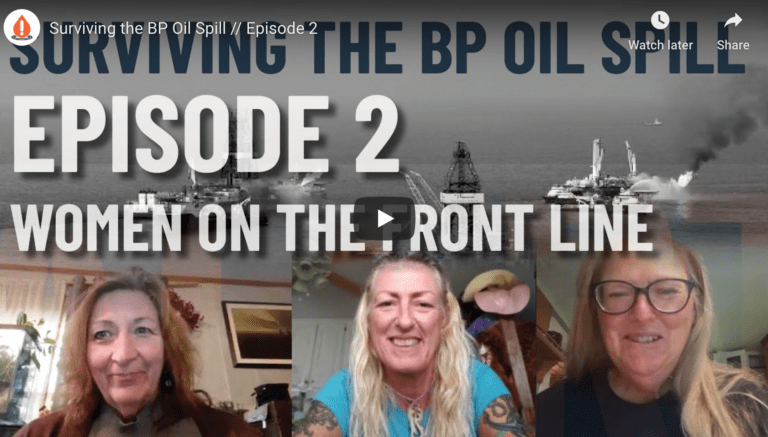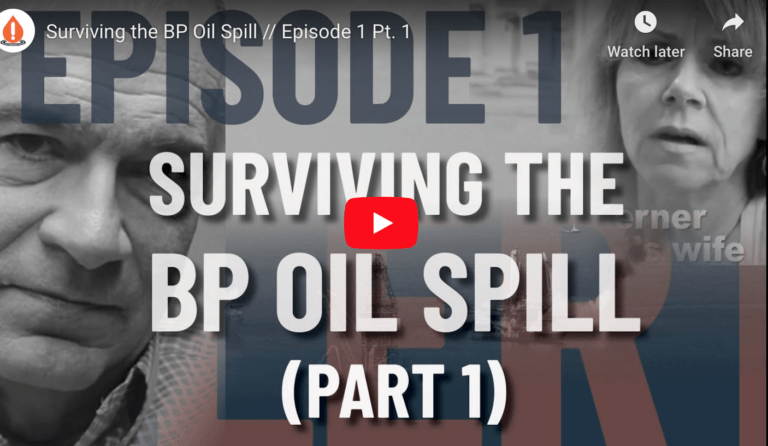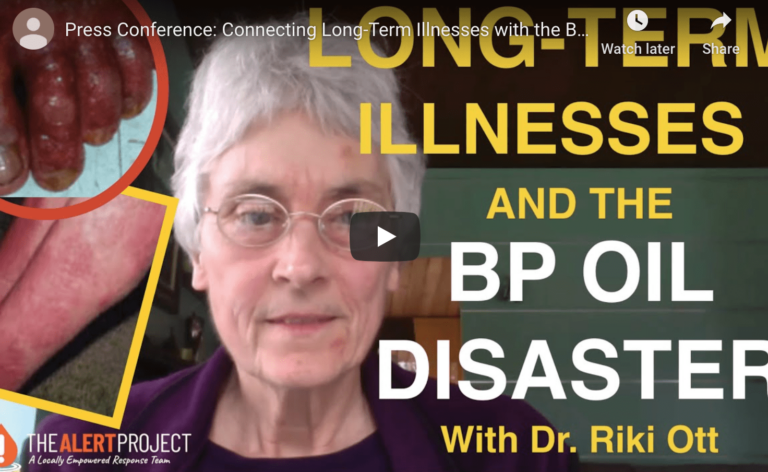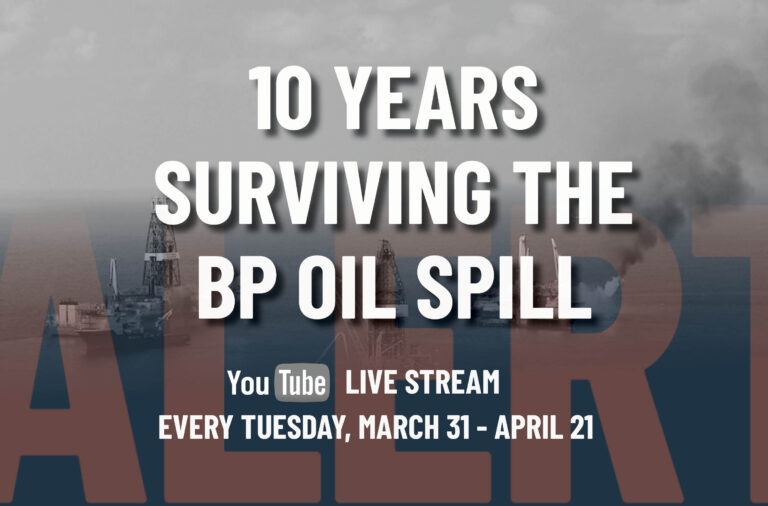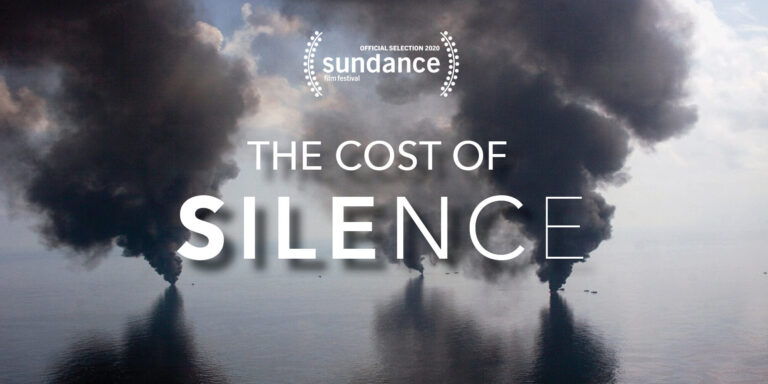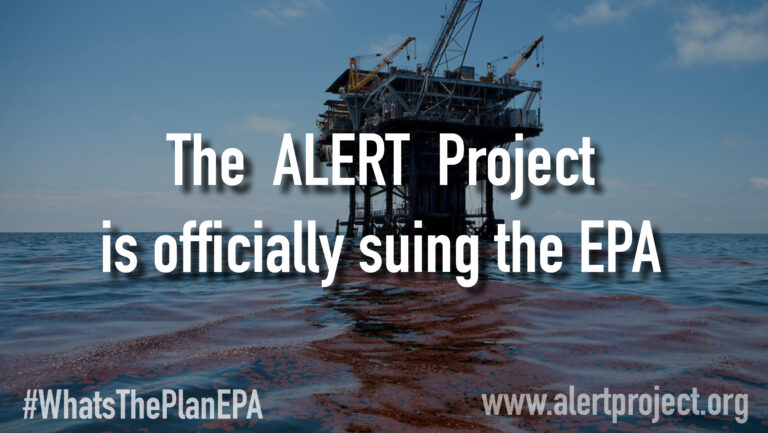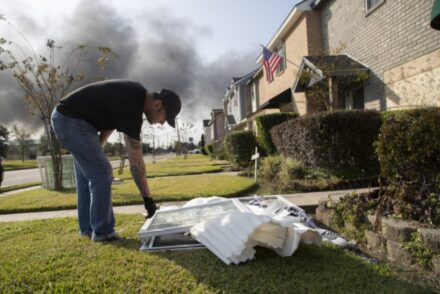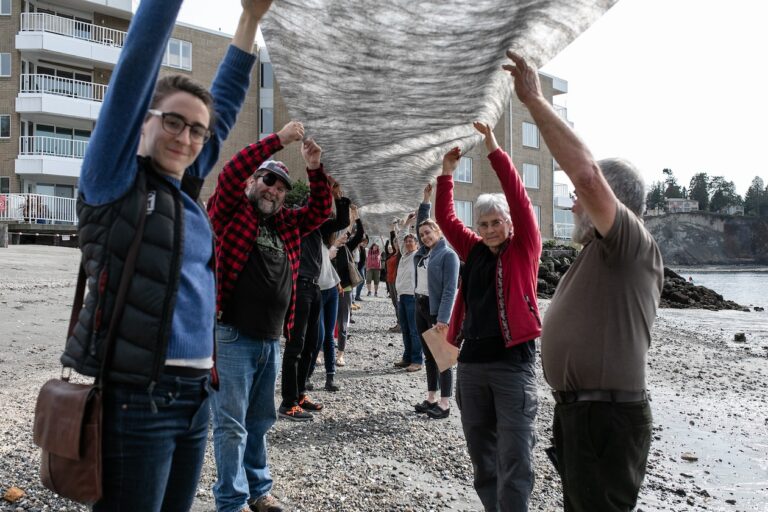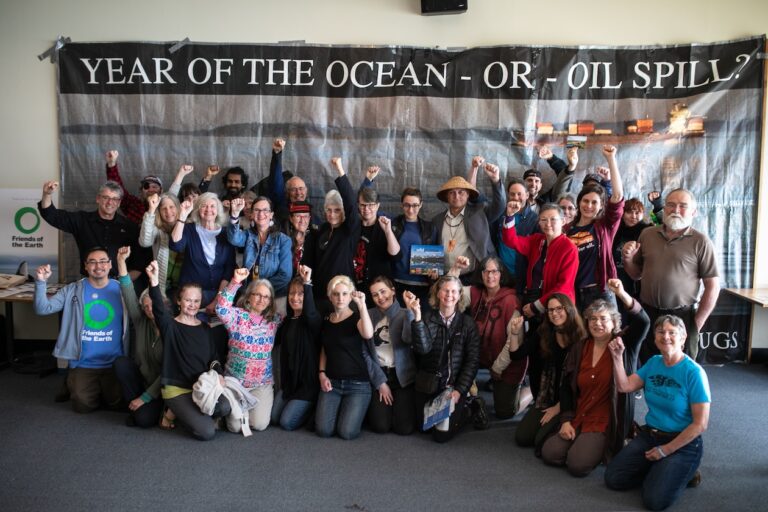Blog
Surviving the BP oil spill // Ep. 2 // Women on the front line
For the second episode of our series, “10 Years Surviving the BP Oil Spill” Dr. Riki Ott joins residents of coastal communities in Alabama and western Florida: Captain Lori DeAngelis, who ran dolphin viewing charters before and after the BP oil disaster in western Florida and has experienced physical and mental health trauma as her…
Read MoreSurviving the BP Oil Spill // Ep. 1 // Louisiana First Responders
Throughout the 10th anniversary month of the BP Deepwater Horizon oil spill, we are hosting a series of live interviews to raise awareness about the ongoing suffering and chronic illnesses of those who lived and worked near the disaster. Studies now show that chemicals used by the government to “clean up” the spill form a…
Read MorePress Conference: Connecting the Dots Between Long-Term Illness and the BP Oil Spill
In anticipation of the anniversary date of the 2010 BP oil spill, Marine Toxicoligist and environmental activist riki ott held a press conference on March 25, 2020, to break down the scientific evidence linking oil dispersants (used on oil spills) to long-term illness in communities surrounding oil disasters.
Read MoreALERT to interview Gulf residents for British Petroleum (BP) oil disaster memorial during April
Our series of live streams “Gulf voices & why we need to listen,” is part of our project to expose long-term illnesses and deaths following the BP oil disaster and highlight the urgent need for national policy reform. Background photo of the 2010 BP oil spill by Julie Dermansky. Ten years since British Petroleum’s Deepwater Horizon oil spill,…
Read MoreALERT featured in ‘The Cost of Silence’ — Official Selection of the Sundance Film Festival
“The Cost of Silence,” Mark Manning’s new film documenting widespread and still ongoing human illnesses in the aftermath of the 2010 BP oil spill, and featuring ALERT’s work, premiered as an official selection of the Sundance Film Festival on Jan. 27, 2020 in Park City, Utah. National Resource Defense Council, in partnership with Entertainment Weekly featured ALERT…
Read MoreALERT announces lawsuit against the Environmental Protection Agency
After eight years of preparation and waiting, The ALERT Project has officially sued the U.S. Environmental Protection Agency (EPA) over its outdated National Contingency Plan, the nation’s emergency response plan for oil spills. The Plan was last updated in 1994 – 26 years ago. Oil companies are supposed to have viable plans to respond…
Read MoreCancer causing Oil-Chemical Pollutants for making rubber and plastic release into the air during explosion in Texas
On November 27, 2019, residents in southeast Texas experienced a devastating public health threat when a 218-acre TPC petrochemical plant blew up in Port Noches, Texas. (Photo credit: NBCNews.com) The plant produces flammable toxic chemicals: raffinate, a petroleum gas, and butadiene, which is used in the production of plastics and synthetic rubber for tires. For…
Read MoreALERT takes new legal action with the EPA
It’s said that maritime law is written in blood or oil—after disasters rather than before them. The same can be said of our nation’s emergency oil and chemical disaster response plan, the National Contingency Plan (NCP or the Plan).Our campaign to ban toxic dispersants from use during oil spill response started after the Exxon Valdez disaster…
Read MoreRiki Ott commemorates the 30th anniversary of Exxon Valdez oil spill in solidarity with Heiltsuk First Nation lawsuit
Thirty years ago on March 24, 1989, the Exxon Valdez grounded on Bligh Reef in Prince William Sound, Alaska, spilling 11 million gallons of crude oil into the ocean. This set off a chain of events that still informs decisions and actions today by government, courts, the oil industry—and by people who don’t want the…
Read MoreBP Deepwater Horizon Medical Victims Deserve Justice
On the eighth memorial of the BP disaster, let’s support the individuals and communities sickened by the BP disaster and by multiple system response failures. In this ongoing nightmare, we can work toward justice for BP victims and their families and toward system-wide accountability to avert similar tragedies in the future. Hundreds of thousands of…
Read More
